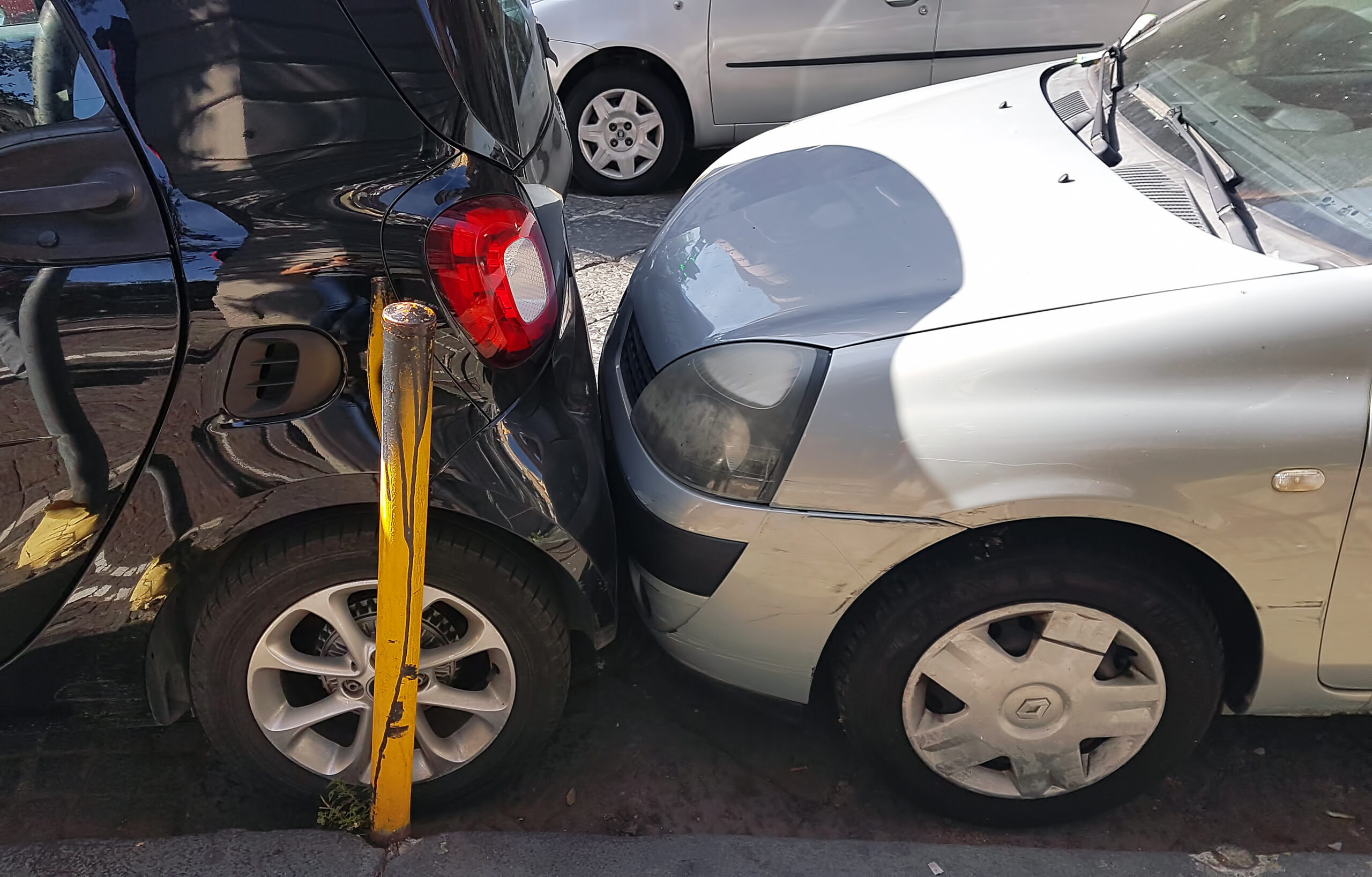Yes, you can generally sue for emotional distress lawsuits after a car accident. In fact, insurance companies may be required to pay for car accident victims' pain and suffering through the claims process. However, suing may be necessary if the amount of money insurance companies offer is not acceptable—or other hang-ups during the claims process make a lawsuit necessary.
Emotional distress is just one type of pain and suffering you may deserve compensation for. You may also have other economic damages like medical bills and lost income, for which your car accident lawyer will seek fair compensation. Allow a car accident attorney to identify your damages and pursue fair compensation from those who owe it to you.
Emotional Distress and Other Types of Pain and Suffering from Car Accidents
Auto accidents can induce intense psychological harm, leading to significant emotional suffering . These intense emotions and physiological responses may not subside once you emerge from your vehicle—as a matter of fact, pain and suffering can be long-lasting after an auto accident.
In addition to emotional distress, car accident victims may also face:
- Post-traumatic stress disorder (PTSD), which is a well-documented problem among those who live through traffic accidents and can cause debilitating symptoms
- Severe Anxiety, which may include an acute fear of being in motor vehicles (particularly on busy roadways or among vehicles traveling at high speeds)
- Depression, which may stem from harmful memories of the accident, the challenges of being injured, or other accident-related circumstances
- Sleep problems, which is noteworthy because those who cannot sleep often struggle in many areas of their life
- Lost quality of life, which may be inevitable when you endure pain and suffering because of a car accident
Scarring and disfigurement, mental suffering and physical pain can also qualify as forms of pain and suffering. Your personal injury attorney will work with a qualified mental health professional to evaluate your pain and suffering and determine the cost of these non-economic damages.
If you need any mental health treatment following the car accident, your lawyer will determine the cost of your care. They can also refer you for care if you don't have a mental health provider already.
Certain Injuries Can Cause Immense Pain and Suffering for Car Accident Survivors
We know that the nature and severity of your injuries will affect the economic cost of your car accident. These factors are also relevant when your lawyer is valuing the cost of your pain and suffering.

Some of the injury-related considerations that may affect your type and severity of pain and suffering are:
- The specific injuries you suffered
- The severity and duration of your physical pain
- The timeline for your injuries to heal
- Whether any of your injuries are disabling
- Whether any of your injuries cause scarring or disfigurement
- The psychological and emotional toll that comes with your injuries
Attorneys have specific ways to calculate car accident victims' pain and suffering for a personal injury claim . If you do your homework when looking for a lawyer, you can trust that yours will accurately reflect your pain and suffering in their settlement demands.
More Damages That Entitle Car Accident Survivors to Compensation
Pain and suffering, including emotional distress damages, are important features of a car accident case and may account for a significant portion of your recoverable damages. However, this is just one of many categories of damages that may entitle you to compensation.
Other damages that car accident victims often face are:
Healthcare Expenses (Which Can Be Disastrous Without Fair Compensation)
Accident victims with severe injuries may face tens of thousands of dollars in costs, if not more. Medical expenses are often a considerable portion of the accident victim's financial burdens, and these bills can arise from:
- Ambulance transport from the accident scene
- Emergency treatment and observation
- Surgery
- Rehabilitation
- Various other medical services (and items like medications, medical devices, and medical equipment)
Attorneys must be familiar with medical jargon, services, and recovery timelines. They often work with doctors and other medical professionals to accurately value their clients' medical expenses.
Professional Damages
When car accident victims take time away from work—or have to retire due to injuries—they often suffer:
- Lost income
- Lost earning power (which happens when an accident victim resumes work but earns less than they did before the accident)
- Lost chances for bonuses, new career opportunities, overtime pay, promotions, and additional benefits
When someone suffers career changes, they may also face great financial uncertainty and the loss of any fulfillment they get from working. Your attorney will weigh all these realities as they develop their settlement demands.ur attorney will weigh all these realities as they develop their settlement demands.
Car Repairs and Other Property Expenses
Your lawyer will naturally calculate the cost of repairing or replacing your car. They will also include the cost of any other property costs when determining how much money you deserve.
A Loved One’s Wrongful Death
Losing a loved one because of a car accident is a tragic, devastating blow. You can hire a Losing a loved one because of a car accident is a tragic, devastating blow. You can hire a wrongful death lawyer to handle your lawsuit or claim—this should give you more time to mourn and be with loved ones.
Some types of damages common to wrongful death cases include:
- Funeral costs
- Burial or cremation costs
- Loss of consortium
- Pain and suffering
- The cost of counseling and other treatments for pain and suffering
- Lost financial support
Wrongful death lawyers know that each victim and survivor has a unique story. They also know, however, the devastating burden that everyone affected by a wrongful death must carry. Trust a lawyer to provide the professional services and support you need.
When You Need Fair Compensation After a Car Accident, Turn to an Experienced Attorney
If you are dealing with emotional distress, that alone is a good reason to hire an attorney. Chances are that the distress is just one of many challenges that lie ahead of you. From time constraints to a daunting recovery, you surely have plenty to deal with.
Your car accident claim or lawsuit is too important to give only a portion of your time to. Instead, allow a car accident lawyer to give their full attention to your case. An attorney:
Gives advice based on real-world experience:
If you were to handle your car accident case, you might find yourself making decisions based on speculation or advice you have only read about. Lawyers, on the other hand, make decisions based on years of relevant real-world experience leading car accident cases.
Provides high-value resources and financial backing:
Your attorney will use a contingency fee arrangement by which they only receive a fee if they win for you. Your legal team will also pay for your case's expert services and other costs. In addition to your lawyer, expect paralegals and other support staff to pitch in on your behalf.
Understands the cost of emotional distress and other non-economic damages:
You might be capable of totaling the cost of repairing your vehicle or even adding up your medical bills—though you might be surprised by how complex seemingly simple tasks can be. More difficult is determining the financial value of emotional distress and other types of pain and suffering. Car accident lawyers are trained and experienced in these matters.
Can be the resource you need most in the wake of a car accident:
The services and support a lawyer provides may be exactly what you need following a car accident. The fact that you don't have to pay your lawyer any upfront or out-of-pocket compensation makes them a particularly appealing resource.
You have been through a traumatic event, and you have emotional distress (and likely other damages) to show for it. Don't hesitate to ask for help from a qualified car accident attorney.
What Your Car Accident Lawyer Will Offer (and How They Will Build Your Case)
Car accident attorneys lend you their services, but they also offer:
- An entire team of professionals (including paralegals, investigators, and experts) working together to secure the compensation you deserve
- Financial resources that may range well beyond your financial means (many car accident lawyers spare no expense when composing clients' cases)
- Transparent advice
- Honest feedback
- Active communication, so you can get answers to your questions whenever you need
You should have a close relationship with your lawyer during the time they are leading your case. That said, your lawyer will be handling the vast majority of your case. Their responsibilities may include:
Personalizing Your Case Strategy
Attorneys take in all relevant information. Then, they conceive and propose a strategy for how to gAttorneys take in all relevant information. Then, they conceive and propose a strategy for how to seek compensation for their client. Your attorney will do the same, and their initial strategy may include:
- Filing a claim with another driver's insurance provider
- Filing a claim with your insurance provider
- Suing one or more parties responsible for the car accident
Before they propose a strategy, your lawyer will research every involved party's insurance policy. They will weigh the strength of evidence, evaluate your losses, and explain why they're recommending a specific strategy.
Proving Who Caused Your Accident (and Resulting Damages Like Emotional Distress)
Insurance companies, at-fault drivers, and other liable parties often fight to avoid paying accident victims. This is why your lawyer will waste no time in proving who caused your accident, and they may rely on:
- Your retelling of how the car accident happened
- Eyewitnesses' accounts of how the car accident happened (these accounts will likely corroborate your retelling)
- Any police report detailing the facts of the accident
- Video showing the accident
Your law firm may also hire experts to help prove fault. An expert may analyze physical evidence, reconstruct the collision, and take other steps to bolster your lawyer's case.
Assigning a Financial Value to Your Case (and Demanding a Fair Settlement)
Your lawyer will pin down a precise case value in preparation for settlement talks. This value will reflect:
- Harm you have already suffered (which may include physical injury and vehicle repair costs)
- Harm you're going to suffer (which may include future surgeries and lost income)
Your car accident lawyer will fight to ensure you're on strong financial footing, not just for now but for the long term.
Drafting and Filing a Lawsuit for You
Your lawyer will communicate regularly, updating you about settlement negotiations. If substantial time passes and you do not receive a fair settlement offer, your lawyer may suggest suing.
If you choose to sue one or more liable parties, your attorney will draft and file the lawsuit right away. There are generally deadlines for filing car accident suits, so a lawyer's knowledge of the legal process will be priceless.
Fighting for Your Financial Recovery in Court
If your car accident case becomes a lawsuit, it can go to court. While most lawsuits settle before going to trial, your lawyer will prepare for court so they're ready for any course your case follows.
Aren’t Car Accident Lawyers Expensive? No, They’re Not.

Car accident lawyers are not expensive. As a matter of fact, you will not face any out-of-pocket costs when you hire an attorney. Instead, your law firm will cover all costs and receive a portion of any settlement or verdict they secure for you.
Car accident lawyers offer this client-friendly fee arrangement because:
- They want as many car accident victims as possible to access their services.
- They are aware that many car accident victims do not have much money to spend on a lawyer.
- Proven lawyers are confident they will get the results their clients deserve, so they are not worried about recovering their fees.
Take advantage of free consultations when you are looking for an experienced personal injury attorney. These no-cost phone calls allow you to learn more about the firm. Don't wait to complete these consultations, as your lawyer may not have much time to secure evidence and file your case.
Contact a Car Accident Lawyer About Leading Your Case
If you suffered emotional distress after an accident, speak with a car accident lawyer at our law firm so they can help you with your legal claim. Proving emotional distress takes time to complete. Contact us today to get started.



